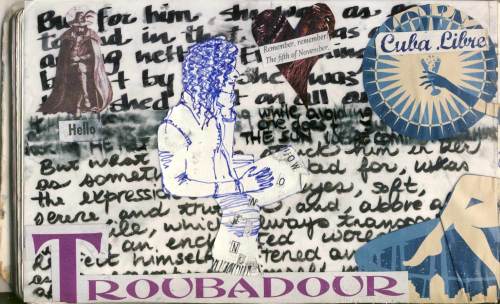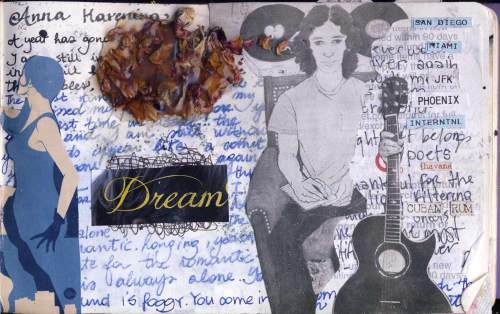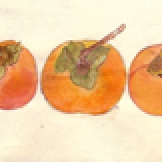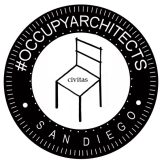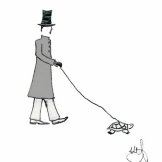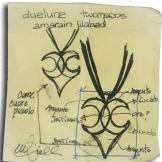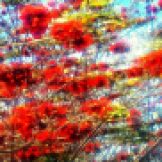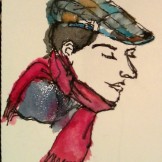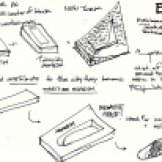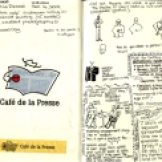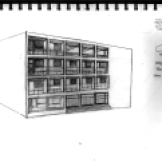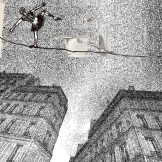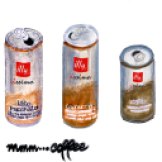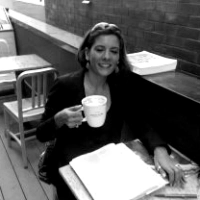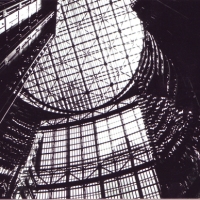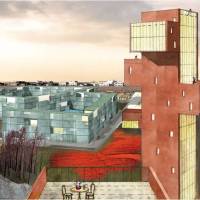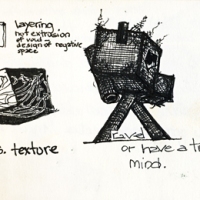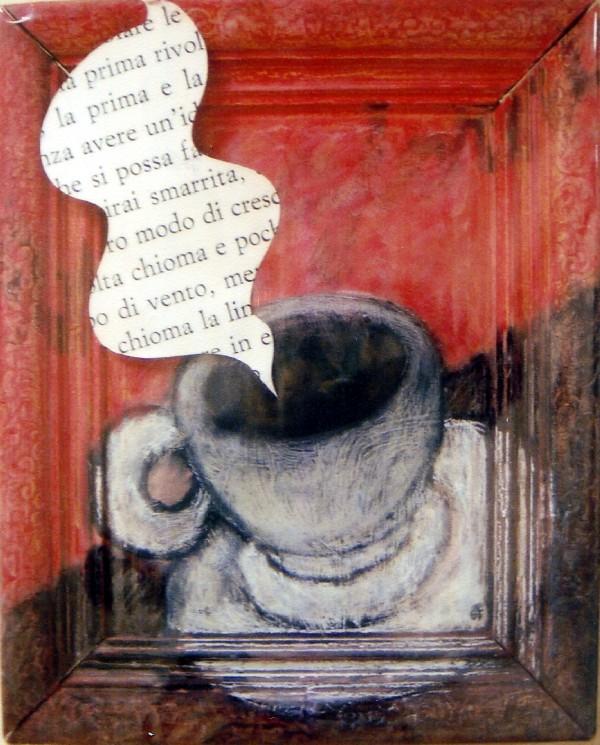[ENG/ITA]
In times of wars
what did we save
from the fire
what survived
the strong southern winds
come to bring me back home
— all my things are still
lining the staircase.
fools that we were,
thinking we could find love
in times of wars.
like painting with sea water.
i did not know
moves are made of
dozens of cuts.
if you’re going to leave,
leave fast, she wrote,
and don’t look back.
books were hard—
the poetry books the hardest.
dear drawings and notebooks
ephemera, possible futures
a Ganesha statue
—all the beloved housethings
that made up a tender home.
Let go.
moves are made of pyres
and mournings.
blow it all away
the intricate sand mandala
of that life
everything is different now, and brand new
‘evolution requires elimination’
erykah says.
yet, why do things left behind
still rip through me at times?
we donated, we sorted,
i packed and shipped
i packed and shipped
i packed and shipped
it was not enough.
delusional about the weight of things, and time
in the mad last day
a lot was left in the motel room
a u-haul worth of beauty in the dumpsters,
unpretty side of town.
I deserved better but
— then only planes.
in another life
i would carry
heapfuls in my arms,
as mothers carry their children
out of a burning building.
i would have more time,
i could save more.
but my back needed heat to function
my shoulder was injured
and my hands,
the same long fingers made for art,
swollen and painful, nails down to nubs.
it took three months to recover.
i did not know moves and possessions
could destroy a body
this way.
don’t tell me you know
if you have not emptied a home
and a storage
of thirteen years
If you haven’t been away
for twenty-eight
if you never lost
one thousand books
these days I tell myself
it couldn’t have gone any different
(and how can i speak of loss
in times of wars and genocide)
I look at what made it and
i’m grateful.
i forgive me.
thirty-one boxes.
the rest, i imagine, was lost in a shipwreck,
containers flying into the sea, north atlantic.
i have my hands. and all my art.
my life was never american
but my leaving town yes
messy, hurried,
few loose ends
a fugitive
quick, before california the sweet
— a siren —
sinks her claws into you again
quick, before california the beautiful
sings ‘but you can never leave
i made it out
not enough is written about how difficult it is
to leave what is easy for what is real
living in paradise could cost
your soul
in a movie I would drive off with sunglasses
never look in the rear-view mirror
cowboy boots, miniskirt, cigarette
I would cross into Mexico.
I would never come back.
In tempi di Guerra
cosa abbiamo salvato
dal fuoco
cosa e’ sopravvissuto
ai forti venti meridionali
venuti a riportarmi a casa
— tutte le mie cose sono ancora
allineate sulla scala.
sciocchi che eravamo,
pensando di poter trovare amore
in tempi di guerre.
come dipingere con acqua di mare.
non sapevo
che I traslochi fossero fatti di
dozzine di tagli.
se te ne vai,
vai veloce, scrisse lei,
e non guardare indietro.
i libri sono stati duri —
i libri di poesia ancora di piu.
cari disegni e quaderni
materiale per collage, futuri possibili
una statua di Ganesha
— tutte le amate cose domestiche
che costituivano una tenera casa.
Lascia andare.
i traslochi sono fatti di roghi
e lutti.
soffia via tutto!
l’ intricato mandala di sabbia
di quella vita
ora tutto è diverso e completamente nuovo
‘l’evoluzione richiede eliminazione’
dice erykah.
eppure, perché le cose lasciate alle spalle
mi squarciano ancora, a volte?
abbiamo donato, abbiamo ordinato,
ho imballato e spedito
ho imballato e spedito
ho imballato e spedito
non è stato sufficiente.
Ignara e illusa riguardo al peso delle cose, al tempo
nel folle ultimo giorno
molto è stato lasciato nella stanza del motel
un furgone pieno di bellezza nei cassonetti,
lato poco attraente della città.
meritavo di meglio ma
— poi solo aerei.
in un’altra vita
porterei le mie cose. tra le braccia,
come le madri portano i loro bambini
fuori da un edificio in fiamme.
avrei più tempo,
potrei salvare di più.
ma la mia schiena aveva bisogno di calore per funzionare
la mia spalla era ferita
e le mie mani,
le stesse dita lunghe fatte per l’arte, gonfie e doloranti,
unghie ridotte a moncherini.
ci sono voluti tre mesi per riprendermii.
non sapevo che i traslochi, e cio’ che uno possiede
potessero distruggere un corpo
in questo modo.
non dirmi che lo sai
se non hai svuotato una casa
e uno scantinato
di tredici anni
se non sei tornato
dopo ventotto,
se non hai mai perso
mille libri
in questi giorni mi dico
non poteva andare diversamente
guardo cosa è sopravvissuto e
sono grata.
mi perdono.
trentuno scatole.
il resto, immagino, è stato perso in un naufragio,
containers che volavano in mare, nord atlantico.
ho le mie mani. e tutta la mia arte.
la mia vita non è mai stata americana
ma la mia partenza sì
confusa, frettolosa,
alcune cose da sistemare
una fuggiasca
veloce, prima che la dolce california
— una sirena —
ti affondi di nuovo le unghie addosso
veloce, prima che la bella california
canti ‘ma non potrai mai andare via’
ce l’ho fatta ad uscire
non si scrive abbastanza su quanto sia difficile
lasciare ciò che è facile per ciò che è reale
vivere in un paradiso potrebbe costare
l’anima
in un film guiderei via con gli occhiali da sole
non guarderei mai nello specchietto retrovisore
stivali da cowboy, minigonna, sigaretta
attraverserei il confine con il Messico.
non tornerei mai più.
Miti Aiello, Calalunga di Montauro, March 5th, 2024
Katherine Graham writes in her Pulitzer Prize-winning memoir, Personal History:
“There are certain experiences — childbirth is one; moving is another — that nature and time definitely draw a curtain on, so you forget in between times how painful they are.”
As Graham highlights for us, moving is one of life’s great “pains.”
Huff Post
Poetry is a form of confession.
This poem processes an oversea move after twenty-eight years, a return home and inherent metamorphoses. In tectonic life shifts there are bound to be casualties.
Moving is the start of “a new history” (New York Times), and the end of an era.
Moving is so much more than packing, purging, losses, exhaustion, burnout and overwhelm, then unpacking and settling.
It’s about self-compassion.
It’s about surrendering to, and managing, negative perfectionism.
It’s about the gentle dance of needing space and time to process, while seeking and desiring new networks, new sights.
In its highest expression, releasing is cathartic.
My move involved countless cuts; it was funeral pyre. It required mournings.
The innermost workings – and bargaining- required in one of the major tests of our life are invisible and unknowable to even our close family members. As for us, each layer of learning is peeled and revealed over time.
Time- the greatest balm to our sore bodies and minds, covering all aches in welcome veils of forgetfulness.
In short, moving it’s a whole process.
Moves are enormous external work, before, during, and after – yet the massive labor is internal.
I had no idea — and, while the fruit and the rewards are sweet indeed, it was an ordeal- and the most physically Demanding backbreaking work i had to do in my life.
Part of me wishes I prepared myself better but, I realize it was all a demonstration on the impermanence of things (isn’t all of life ?), necessary to teach me about non-attachment.
As with all major life events, life gives you the test first, then the lesson..
Moving is a death experience, Rosemary Beavis writes in her ‘Poem About Moving’. She talks about a ‘process to establish a new root system’’, and how we are given careful instructions for transplanting seedlings, but not ourselves. Michael Walker in Moving House talks about a traveler who may not say goodbye.
I had a faint idea idea that moving was ranked alongside divorce as one of the most stressful life events one will ever go through — now I fully, fully understand. I just learned about moving/ transitional trauma, and there is even such a thing as relocation stress syndrome.
In moves we must leave behind “the stuff that has our souls built in “ (anonymous).
‘Saying goodbye to stuff’ and simplifying can be part of a spiritual test of endurance, it is the spring cleaning of our entire lives.
On the other side of the fire, a new life, and fresh energies.
There is something glorious in escaping the past, and certain futures — movies you have seen before. Here is the alternate ending.
Moves, more or less traumatic, are a right of passage in life’s journey. A lot is lost.. but much more is gained- along with resilience and fortitude.
As for me, in the next life I will hire a move manager. Or become a move manager 🤭 so I never have to go through the terrible thing.
“The move manager is part psychologist, part mediator, part daughter, who swoops in with a positive, informed attitude and takes the stress off the entire situation.”
Huff Post
What is your experience with moving?
Is there a line in my poem that resonates with you?
Let me know in the comments!

